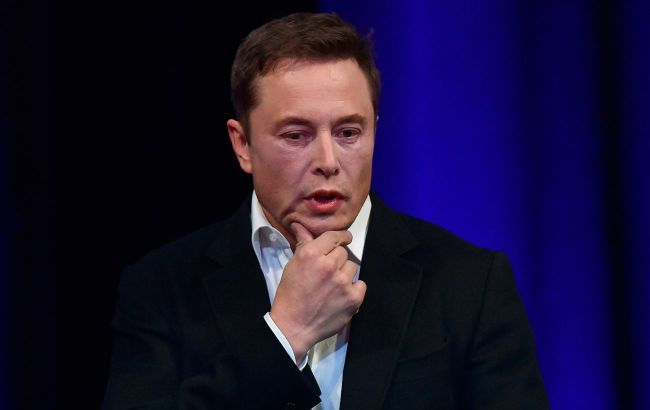Germany accuses Elon Musk of trying to interfere in its election
 Photo: American businessman Elon Musk (Getty Images)
Photo: American businessman Elon Musk (Getty Images)
The German government has accused Elon Musk of attempting to interfere in the country's election campaign. The accusation stems from the billionaire's repeated support for the far-right party Alternative for Germany (AfD), reports The Guardian.
In her statement about Musk's attempts to influence the federal elections, German government spokesperson Christiane Hoffmann noted that the businessman’s posts under the hashtag "X" and his article last weekend in support of the anti-Muslim and anti-immigration AfD led to this conclusion.
At a regular media briefing, Hoffmann emphasized that while Musk has the right to freedom of speech, she questioned his conclusions. “After all, freedom of opinion also covers the greatest nonsense,” she said.
Musk’s posts on X
In November, Musk frequently expressed opinions about German government politics on his social media platform X. He even referred to Chancellor Olaf Scholz as a "fool." However, his recent open calls for German voters to support AfD, a party suspected by federal authorities of extremism, sparked outrage and accusations of troubling interference in Europe's leading economy.
The South African entrepreneur, whom Donald Trump appointed to co-chair a commission to reduce the size of the US federal government, wrote on X in early December: "Only the AfD can save Germany."
In the post, he shared a video of the German right-wing leader Naomi Seibt, who criticized Friedrich Merz, the conservative leader running in Germany's elections, and praised Javier Milei, Argentina’s self-styled “anarcho-capitalist” president.
Over the weekend, Milei published an op-ed in Welt am Sonntag. In the article, he claimed that Germany was on the brink of economic and cultural collapse and defended AfD against accusations of radicalism. He also praised the party's economic approach, including its regulation and tax policy stance.
Eva Marie Kögel, editor of the center-right newspaper’s opinion section, wrote on X that she had resigned in protest over the decision to publish this article.
Musk's technology and early elections
Politicians across the political spectrum criticized Musk’s attempts to "put his thumb on the scales of German democracy." Health Minister Karl Lauterbach, from Chancellor Scholz’s Social Democratic party (SPD), called his interference "undignified and highly problematic." On the other hand, Merz called it "intrusive and presumptuous."
Merz told the Funke media group: “I cannot recall in the history of Western democracies a comparable case of interference in the election campaign of a friendly country.”
In November, as The Guardian notes, Scholz's left-center coalition collapsed, forcing him to call a vote of confidence to initiate early elections in February — seven months ahead of schedule. The Chancellor's SPD is expected to lose to Merz's Christian Democratic Union/Christian Social Union (CDU/CSU) block amid voter frustration over the cost of living and weak economic growth.
Last week, German President Frank-Walter Steinmeier delivered a brief speech in which he directly criticized X and indirectly Elon Musk, announcing his official decision to dissolve parliament and set elections for February 23, 2025.
Steinmeier, whose role is largely ceremonial, warned of "outside influence" on the campaign, referring to the recent "open and blatant" attempts by X to affect the vote. His remarks were widely interpreted as a warning to Musk.
AfD's influence
Members of AfD have spent months building connections with Trump's camp. The party’s co-leader, Alice Weidel, was among the first foreign politicians to congratulate Trump on his election victory.
A small group of AfD activists posed with Trump at his private Mar-a-Lago club on US election day, November 5, chanting "Fight! Fight! Fight!" in both English and German for the cameras.
Musk also referred to "Weidel's same-sex partner from Sri Lanka" as evidence that the portrayal of AfD as a right-wing extremist party was "clearly false." "Does that sound like Hitler to you? Please!" Musk wrote.
AfD holds second place with around 19%, trailing the CDU/CSU's 31%.
The high score of the party could complicate coalition-building after the elections, requiring the winner to seek two partners to form a governing majority. All key parties have ruled out cooperation with AfD at both the state and federal levels.
Musk's controversial statements
This year, American billionaire Elon Musk supported Donald Trump and urged people to vote for him on the X social media platform. He also donated over $100 million to mobilize voters for the Republican candidate.
Later, Musk threatened to "destroy" anyone who linked his activities to Russia.
US Senator Elizabeth Warren reached out to Trump about Musk’s powerful influence over the incoming administration.
In response, Trump assured that Musk would not become the new head of the White House.

